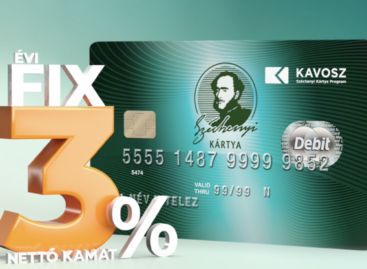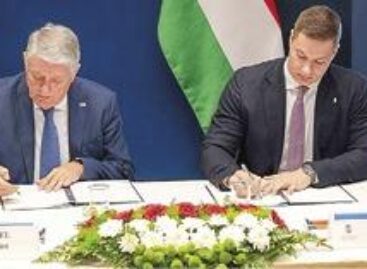NGM: decisions have already been made on the development plans of more than fifty companies in the Demján Sándor Capital Program
Despite pressure from Brussels, the government is doing everything it can to increase the productivity of domestic SMEs, facilitate their growth and support their investments, the Ministry of National Economy (NGM) emphasized in its statement on Monday.
 As it was written, within the framework of the Demján Sándor Program, the government is supporting the strengthening of enterprises with more than 1,400 billion forints of resources, thus contributing not only to the development of the economy, but also to the financial security of families, since the SME sector, which accounts for 99 percent of domestic enterprises, provides a livelihood for 72 percent of the employed.
As it was written, within the framework of the Demján Sándor Program, the government is supporting the strengthening of enterprises with more than 1,400 billion forints of resources, thus contributing not only to the development of the economy, but also to the financial security of families, since the SME sector, which accounts for 99 percent of domestic enterprises, provides a livelihood for 72 percent of the employed.
According to the statement, decisions have already been made on 55 capital investments and 10.8 billion forints within the framework of the 100 billion Demján Sándor Capital Program.
The unique government initiative has generated interest among domestic micro, small and medium-sized enterprises that exceeded expectations in just a few months. The scope of activities of the enterprises that received capital financing covers a wide range, including IT consultants, steel structure manufacturers, catering units and healthcare providers – the ministry explained.
Richárd Szabados, State Secretary for the Development and Technology of Small and Medium-Sized Enterprises at the Ministry of Economy, Trade and Industry, highlighted in the announcement: one of the biggest advantages of the program is that it offers capital at a rate of return of only 5 percent per year, 50-70 percent lower than the usual rate of return for market capital investments. This also helps enterprises to become more creditworthy, and enterprises strengthened by fresh capital can more easily apply for other elements of the Demján Sándor Program, such as the SME Technology Plus interest-free loan, or the Széchenyi Card or EXIM Export Promotion loans available at interest rates significantly lower than market levels.
It was recalled that the aim of the capital program is to provide a substantial source of funding to the structurally capital-poor Hungarian SME sector. Up until now, only a few dozen SMEs in the growth phase have requested state capital investment each year – the number of decisions reached now exceeds this.
The Ministry of Finance also emphasized that capital financing is more flexible than credit in many respects, but at the same time requires an individual assessment, decision and long-term partnership in each case. The goal is for 500-600 enterprises to receive development capital during the entire program.
In order for enterprises to be able to use the support even more widely, the call was amended in several points as of Monday. Among the changes, it stands out that there is now also an opportunity for follow-on investments, meaning that companies that have already successfully completed a project can apply again. In addition, acquisitions and owner and management buyouts have also been included among the eligible activities. The product description has been supplemented with the maintenance obligation, and the range of eligible costs has been further expanded: sales and marketing expenses, personnel costs, training, inventory financing, and consulting and expert fees can now also be financed under the program, the Ministry of Agriculture and Rural Development pointed out.









